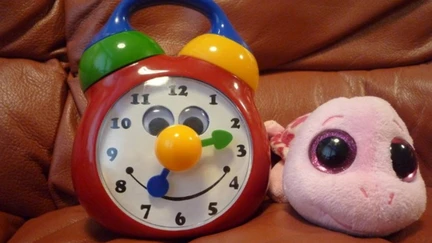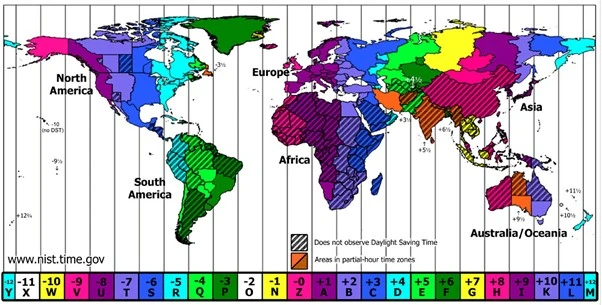Daylight Saving: What is it?
On Sunday 4 April at 3am all the clocks in New Zealand will "fall backwards" ONE HOUR to 2am as Daylight Saving time finishes. But why do we do this strange practice?

Well... to explain Daylight Saving, we first really need to understand modern time:
Spring forward
Fall backwards
A brief history of time
Today we tell the time by cell phones, computers and radios, as well highly accurate clocks and watches. Time rules our lives much more than in the past. Before Europeans arrived, Māori told the time by the rising and setting of the sun, the seasons, and the phases of the moon. When settlers began arriving from Britain in the 1840s, not many could afford clocks or watches, so they used bells to ring the times for school, work and church. But each town would often have a slightly different time, which was confusing for everyone. So in 1868 the New Zealand government decided it was time to have a nationwide time for everyone to follow. We were the first country in the world to do this. We made our time 11½ hours ahead of the time set at the Royal Observatory at Greenwich in England (known as Greenwich Mean Time). Towns and cities built public clocks, and by the 1880's people were using clocks at home, and wearing watches.
In 1941 the clocks were set 12 hours ahead of Greenwich Mean Time. And since 1974 Kiwis have enjoyed daylight saving during summer, when the clocks are put forward one hour.
What Are Time Zones?

Global time zones on Flickr, licensed under CC BY 2.0
Without time zones, it would be impossible for all countries on Earth to have the sun at the highest point in the sky at noon. Why? Because Earth rotates by 15 degrees every hour. This is exactly why time zones were created. Basically, the planet was split into 24 slices of 15 degrees each. Each slice is a time zone.
So...What is Daylight Saving Time (DST)?
Daylight Saving Time (DST) is the practice of adjusting clocks so that we humans can enjoy more daylight hours during the summer to pursue our activities. Typically clocks are adjusted forward one hour near the start of spring and are adjusted backward in autumn. So, in New Zealand we put our clocks FORWARD 1 HOUR at the end of September (beginning of our Spring), and on Sunday 4 April 2021, at 3am we will all be putting our clocks BACK 1 HOUR (beginning of our Autumn / Fall). And you'll be pleased to know that your cell phones will do all this automatically for you - Smartphones!
Here's a quick tutorial on Daylight Saving - a practice first suggested by New Zealand entomologist, George Hudson, so that he'd have more daylight hours available to study bugs!
If you've got time to kill, why not check out some of these great reads all about time: